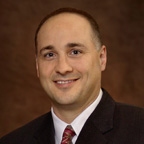
Fact #1: Millenials are Educated and Privileged
Born roughly between 1980 and 2000, they are widely considered the most privileged and best-educated group ever to have inhabited the earth – so far, anyway. Millennials have had access to health care since birth, many have never known poverty or hardship and most are literate, with a whopping 70% expected to attain a college degree. They are also more knowledgeable about their health, having grown up in a time when their education included sex education and open debate on issues such as smoking and abortion.
Fact #2: Millenials are Weight- and Health-Conscious
The human race is healthier than it has ever been before, and people are living longer. With more than 150,000 people worldwide now alive past the age of 100 years, what’s the outlook for the millennials? To reach 110 or 120 perhaps, instead of the traditional “three score years and ten?” Certainly, most millenials will tell you they have every intention of reaching those ages, and with modern medical technology and nutrition it’s entirely possible.
They are, however, far more aware than their parents were of the need to maintain good health, and they’re currently still young enough to be largely untroubled by age-related conditions. This makes primary and preventive healthcare services more attractive to the demographic than the management of chronic conditions.
Fact #3: Millenials are Brand-Aware
Having grown up in a society where advertising targets children from as young as 2 years, millennials are brand-aware and discriminating well before they reach adulthood. They know how to identify which medical marketing materials they want to consume and reject the rest, how to be selective in their choice of service provider and how to question – everything!
Millenials know what they want, and there’s enough information out there to enable them to find it. To become the medical professional of choice to a millennial, your practice brand really has to stand out among the others in your area.
Fact #4: Millenials are Plugged In
Always plugged in and always online, millennials spend their lives connected to others. They’re joined at the hip to the Internet and their smartphones, and many have no desire to read or write anything on paper – ever! Handing out service brochures at events isn’t going to capture their interest; you’d do better saving that for their parents and grandparents, while you entice the youth with interactive, electronic health options. Text messaging, social media, smartphone apps – they all contribute to the lightning speed of information, which millenials process almost as fast using the laptops, tablets and hand-held devices they are seldom seen without.
Fact #5: Significant Buying Power
Right now, millennials represent buying power of about $170 billion. Given that by the year 2025 (which is only 12 years away!) they are expected to comprise 75% of the workforce, that’s a figure you can expect to see grow.
In 12 years from now, they will still be privileged, educated, health-conscious, brand aware and plugged in – and worth a lot more than $170bn. They’ll also be older and making use of more healthcare services than they are now. So if your medical marketing strategy doesn’t include millennials as a major target group, maybe it’s time you reviewed it.


